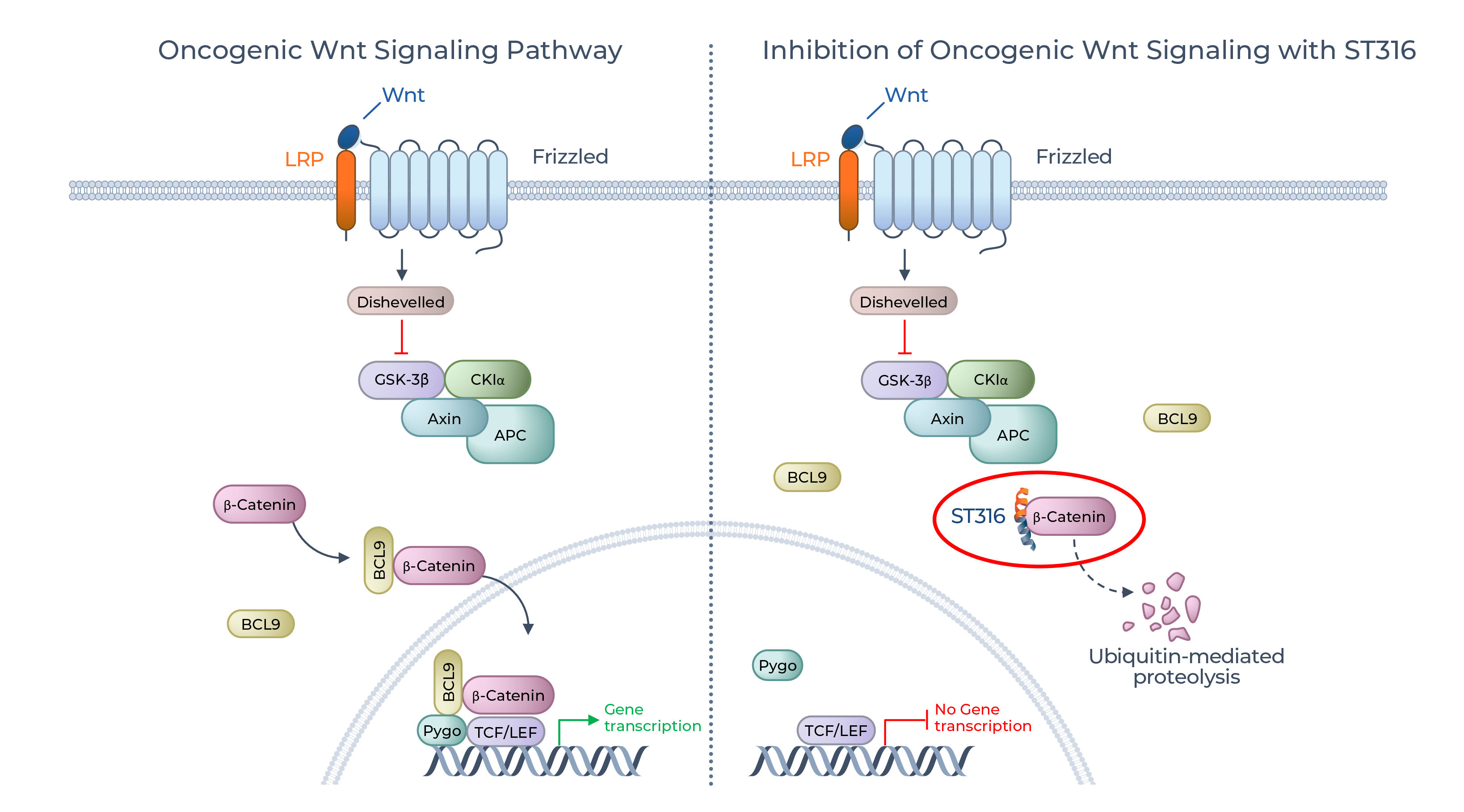Target Overview – β-catenin
β-catenin is an active transcription factor with key roles in stem cell renewal and organ regeneration. Hyperactive Wnt signaling through β-catenin drives a multi-faceted oncogenic environment, driving cancer initiation and contributing to tumor growth, angiogenesis, metastasis and an immunosuppressive tumor microenvironment.
Mutations in the Wnt-pathway are found in 90+% of colorectal cancers, 80% of melanomas, 75% of NSCLC and 50% of breast cancers.
ST316 Mechanism of Action
ST316 disrupts oncogenic Wnt signaling by preventing β-catenin translocation to the nucleus. Through disruption of the BCL9/β-catenin interaction, ST316 suppresses transcription of Wnt target genes regulating proliferation, migration, invasion and the metastatic potential of tumor cells.

ST316 Program Overview
ST316, a first-in-class β-catenin antagonist, is currently being evaluated in IND-enabling studies. β-catenin is a critical member of the canonical Wnt signaling pathway, a well-known development stage pathway that has been considered an "undruggable" cancer target, as small molecules have proven ineffective or toxic.
In preclinical studies to date, no toxicity has been observed. In vitro and in vivo data sets show highly potent cell kill against 3-dimensional patient-derived breast cancer xenograft tumoroids and tumor regressions/growth delays in multiple models of disease.
